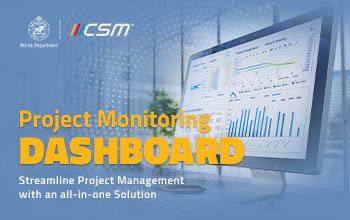As organizations grow and expand, the complexity of managing a diverse workforce increases. Enter the Human Resource Management Information System (HRMIS)—a comprehensive software solution designed to streamline HR operations, automate administrative tasks, and provide valuable insights for decision-making. Whether it’s recruitment, payroll, performance management, or compliance, HRMIS centralizes and simplifies these processes, enabling businesses to focus on strategic initiatives that drive growth. By leveraging the power of HRMIS, companies can not only enhance productivity but also improve employee satisfaction and retention, making it a vital tool in the modern workplace.
Transforming HR Operations with HRMIS:
.jpg)
A Human Resource Management Information System (HRMIS) is a digital platform designed to integrate and manage various HR functions. By automating repetitive and administrative tasks, HRMIS allows HR professionals to focus on more strategic initiatives like talent development and workforce planning.
As of 2023, approximately 79% of organizations use some form of HR technology, with 56% of them using fully integrated HRMIS solutions. Implementing an HRMIS can significantly reduce the time spent on administrative tasks. On average, companies report a 30% reduction in time spent on payroll and a 40% improvement in overall HR efficiency. Additionally, businesses have seen a 15-20% reduction in HR costs due to the automation of tasks like recruitment, payroll, and compliance management.
HRMIS solutions that include applicant tracking systems (ATS) help organizations reduce the time to hire by 50%. A study showed that companies using an HRMIS reported an average hiring time of 15 days, compared to 30 days for those without such systems. Companies that use HRMIS for performance management and employee engagement report 25% lower turnover rates. Businesses using HRMIS for compliance management saw a 50% reduction in penalties related to labor law violations and non-compliance. Features such as multi-currency payroll and location-specific compliance make it easier to manage a global workforce.
Core Features of HRMIS
.jpg)
Recruitment and Applicant Tracking: HRMIS simplifies the hiring process by automating job postings, resume parsing, and applicant tracking. It helps HR professionals quickly filter candidates, schedule interviews, and manage communication with potential hires, saving time and effort.
Payroll and Benefits Management: Automating payroll ensures that salaries, bonuses, and deductions are calculated accurately and on time. HRMIS can also integrate benefits administration, ensuring compliance with tax laws and company policies while reducing the risk of human error.
Attendance and Leave Management: HRMIS tracks employee attendance, monitors working hours, and manages leave requests. This feature helps reduce absenteeism, improves time management, and ensures that leave policies are applied consistently across the organization.
Performance Management: Performance management modules allow companies to set employee goals, track progress, and provide continuous feedback. This feature enables HR teams to implement structured performance reviews and create personalized development plans.
Employee Self-Service Portals: HRMIS often includes self-service portals where employees can access their personal information, request time off, check payroll, and update their details. This reduces HR’s administrative burden and empowers employees to manage their HR-related needs independently.
Compliance and Reporting: HRMIS ensures that organizations remain compliant with labor laws and regulations by automating compliance checks and generating reports. This feature helps companies avoid legal issues and streamline audits.
Positive Aspects of HRMIS:
.jpg)
- Improved Efficiency: By automating repetitive tasks, HRMIS frees up time for HR teams to focus on strategic activities such as talent development and employee engagement. Recruitment, onboarding, and payroll processes that used to take days can now be completed in hours.
- Centralized Data and Insights: HRMIS stores all HR-related data in one place, making it easy for HR professionals to access and analyze information. With real-time data and analytics, companies can make data-driven decisions, such as identifying trends in employee performance, turnover rates, and workforce productivity.
- Enhanced Employee Experience: A well-implemented HRMIS creates a seamless experience for employees by providing a user-friendly platform for managing their personal information and HR requests. This improves employee satisfaction and engagement, leading to better retention rates.
- Cost Savings: Although implementing an HRMIS involves an upfront investment, it offers long-term cost savings by reducing manual errors, streamlining processes, and minimizing the need for extensive HR personnel. Additionally, automation reduces the risk of non-compliance fines and legal penalties.
- Scalability: As organizations grow, their HR needs evolve. HRMIS solutions are scalable and can accommodate growing employee bases, making it easy to manage HR operations across multiple locations, departments, or even countries.
Concluding…
Human Resource Management Information Systems have become indispensable tools for modern organizations. By automating HR processes, centralizing data, and providing actionable insights, HRMIS empowers HR teams to focus on strategic initiatives that drive business success. Investing in HRMIS can help transform HR operations, improve compliance, and create a more engaged and productive workforce.
With the right implementation, CSM Tech’s Solution HRMIS has transformed HR operations, making them more responsive, efficient, and employee-centric. This project is a strategic initiative by the Government of the Gambia to develop an integrated Human Resources Management Information System (HRMIS) for its entire public service workforce. As the HR system continues to evolve into a more data-driven and strategic function, HRMIS will remain a cornerstone of efficient and effective human resource management.


























































We will verify and publish your comment soon.